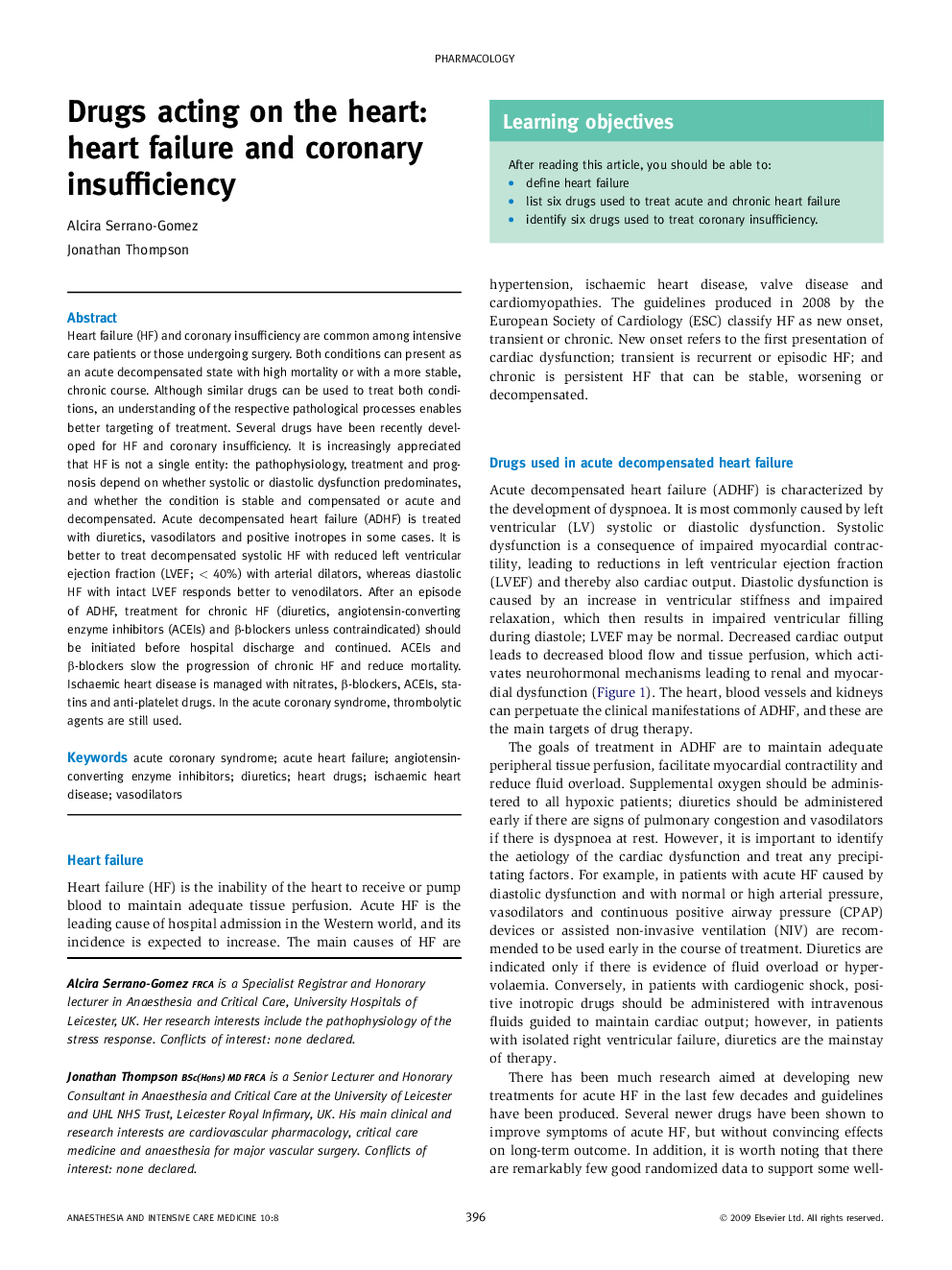| Article ID | Journal | Published Year | Pages | File Type |
|---|---|---|---|---|
| 2743446 | Anaesthesia & Intensive Care Medicine | 2009 | 4 Pages |
Abstract
Heart failure (HF) and coronary insufficiency are common among intensive care patients or those undergoing surgery. Both conditions can present as an acute decompensated state with high mortality or with a more stable, chronic course. Although similar drugs can be used to treat both conditions, an understanding of the respective pathological processes enables better targeting of treatment. Several drugs have been recently developed for HF and coronary insufficiency. It is increasingly appreciated that HF is not a single entity: the pathophysiology, treatment and prognosis depend on whether systolic or diastolic dysfunction predominates, and whether the condition is stable and compensated or acute and decompensated. Acute decompensated heart failure (ADHF) is treated with diuretics, vasodilators and positive inotropes in some cases. It is better to treat decompensated systolic HF with reduced left ventricular ejection fraction (LVEF; < 40%) with arterial dilators, whereas diastolic HF with intact LVEF responds better to venodilators. After an episode of ADHF, treatment for chronic HF (diuretics, angiotensin-converting enzyme inhibitors (ACEIs) and β-blockers unless contraindicated) should be initiated before hospital discharge and continued. ACEIs and β-blockers slow the progression of chronic HF and reduce mortality. Ischaemic heart disease is managed with nitrates, β-blockers, ACEIs, statins and anti-platelet drugs. In the acute coronary syndrome, thrombolytic agents are still used.
Keywords
Related Topics
Health Sciences
Medicine and Dentistry
Anesthesiology and Pain Medicine
Authors
Alcira Serrano-Gomez, Jonathan Thompson,
